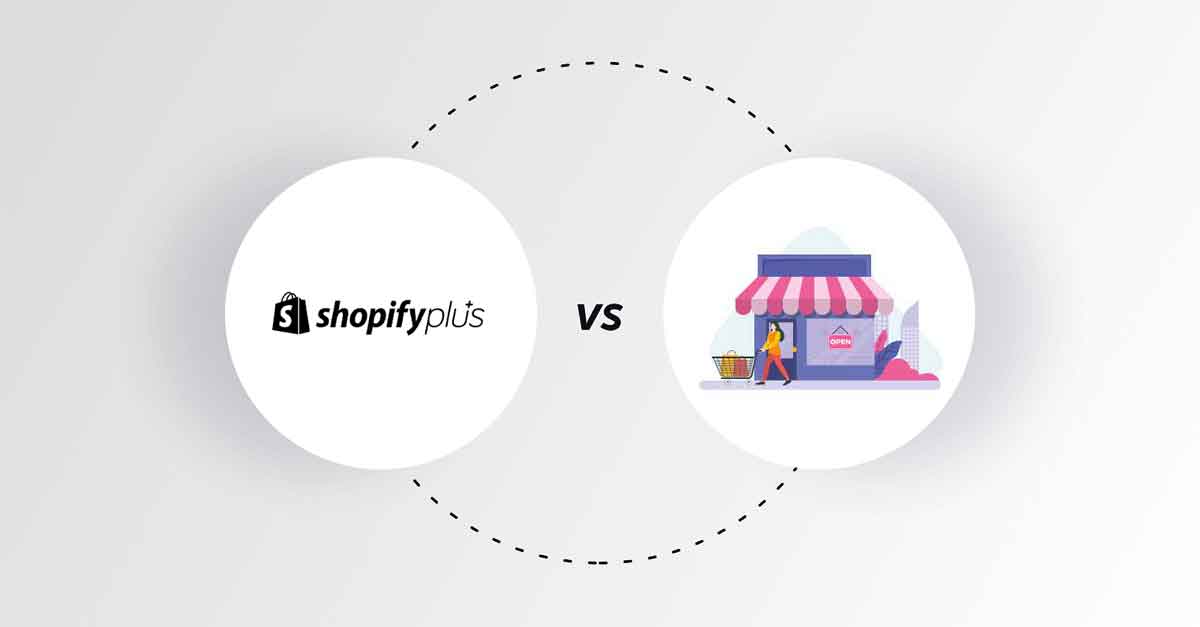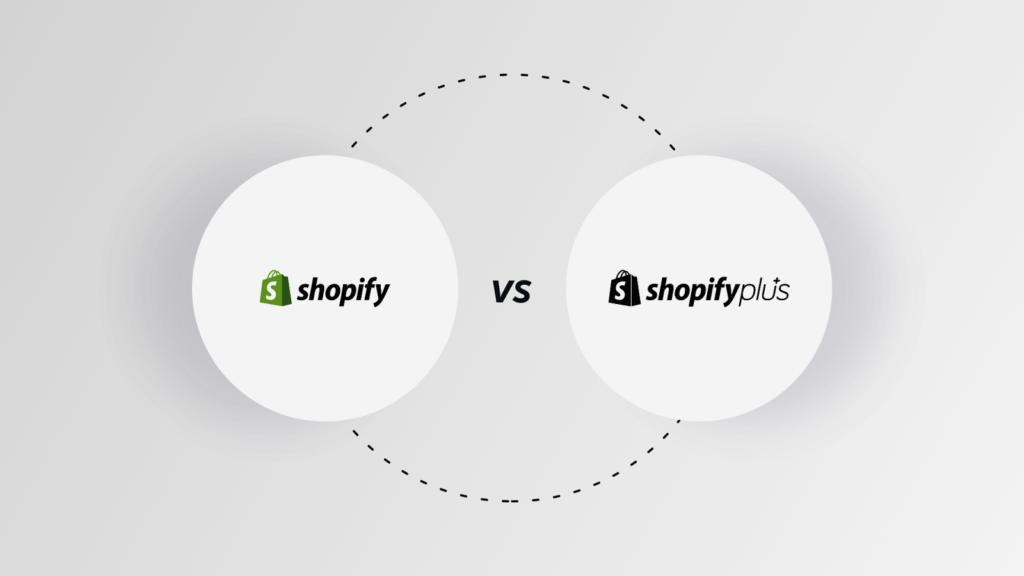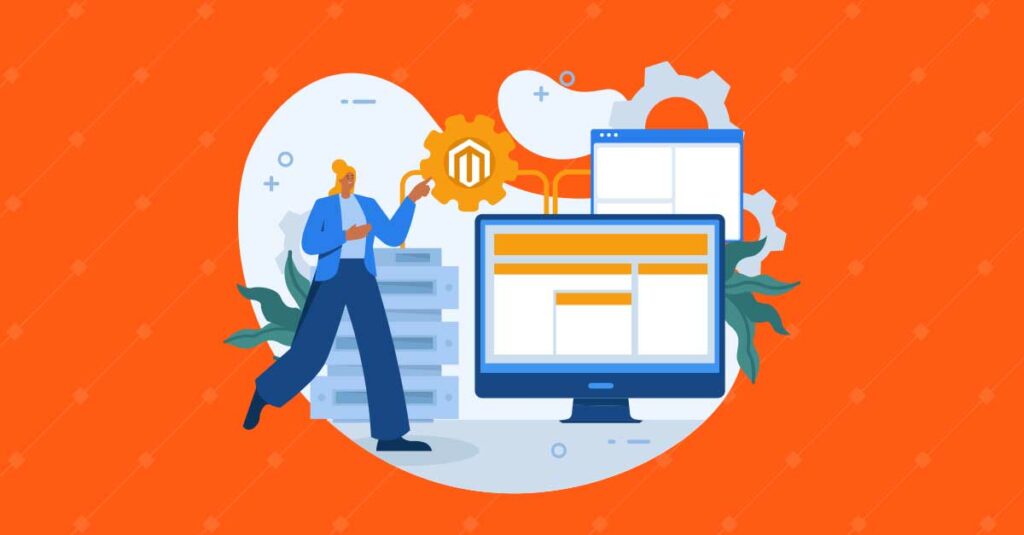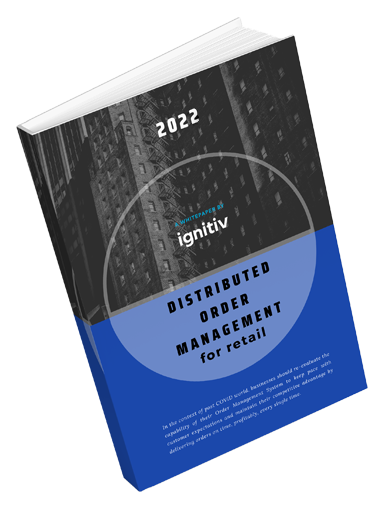Choosing Your Digital Storefront: A Comparative Study of Shopify Plus Vs Traditional eCommerce
Stepping into the world of eCommerce can be an overwhelming experience, whether you are a beginner, an entrepreneur, or a high-scale digital merchant. Everyone is claiming they are the best in the industry on multiple reasonable criteria. In competitive business environments where top eCommerce platforms compete to deliver top-notch services to businesses, choosing the best among the densely populated landscape of eCommerce businesses can be a time-consuming and distressing experience.
So, to make things easier and clearer for time-strapped online sellers, we have prepared a comparative analysis between Shopify Plus vs traditional eCommerce platforms.
If you are reading this blog, you must be familiar with the Shopify brand image, as it has emerged as one of the top players in the eCommerce industry in recent times. But you are still wondering if Is Shopify worth it compared to its fellow competitors. We will go deep into the comparison of Shopify Plus with other eCommerce platforms available, highlighting their features, pros, and cons, and much more.
What is Shopify Plus?
Shopify and Shopify Plus look similar but differ in their features. Shopify Plus is an enterprise-level eCommerce, an advanced version of Shopify, built for small-to-medium businesses and high-growth businesses. Shopify Plus is most suitable for high-scale transaction volume merchants and more complex business requirements. Get access to unique tools of Shopify to scale your business operations faster. Is Shopify Plus worth it in 2024? Let’s explore!
What is Traditional Commerce?
The earlier eCommerce model was solely based on a monolithic structure, where the front-end UI is coupled with back-end infrastructure. In this structure, front-end code handles designs, and core functions are managed by the back-end code. When a customer visits a product page, the data is fetched from the database and presented on the page by front-end and back-end code collaboration.
The downside can be its limited platform templates and capabilities. We need advanced development skills to deliver a highly customized customer experience. Some popular traditional eCommerce platforms include WooCommerce, BigCommerce, etc.
Why Use Shopify Plus & Is it Better Than Others?
- Shopify Plus is highly popular due to its user-friendliness and highly advanced features with more flexibility and dedicated support options.
- Shopify Plus is designed to handle high-volume traffic and transactions where 10,000 checkouts per minute with 99.9% uptime assurance.
- WooCommerce draws the customer’s attention with its high flexibility and seamless WordPress plugin integrations.
- Magento, on the other hand, excels in top-tier enterprise-level unique features.
- BigCommerce is known for its eCommerce features versatilities like multi-channel selling and mobile-friendly capabilities.
Shopify Plus: One-Stop Solution for All Your Business Needs
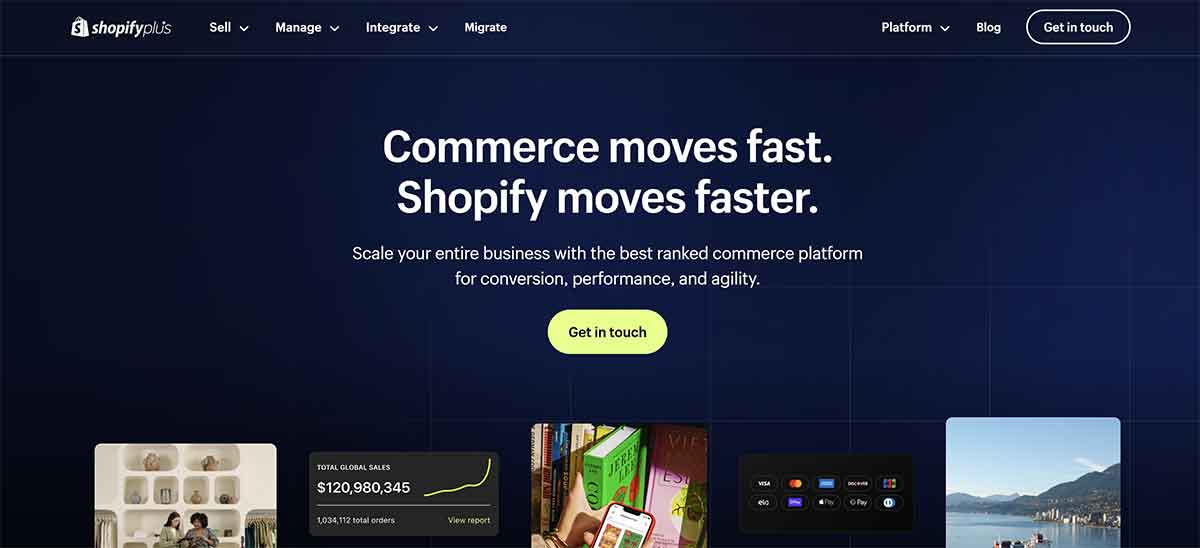
Shopify Plus Features
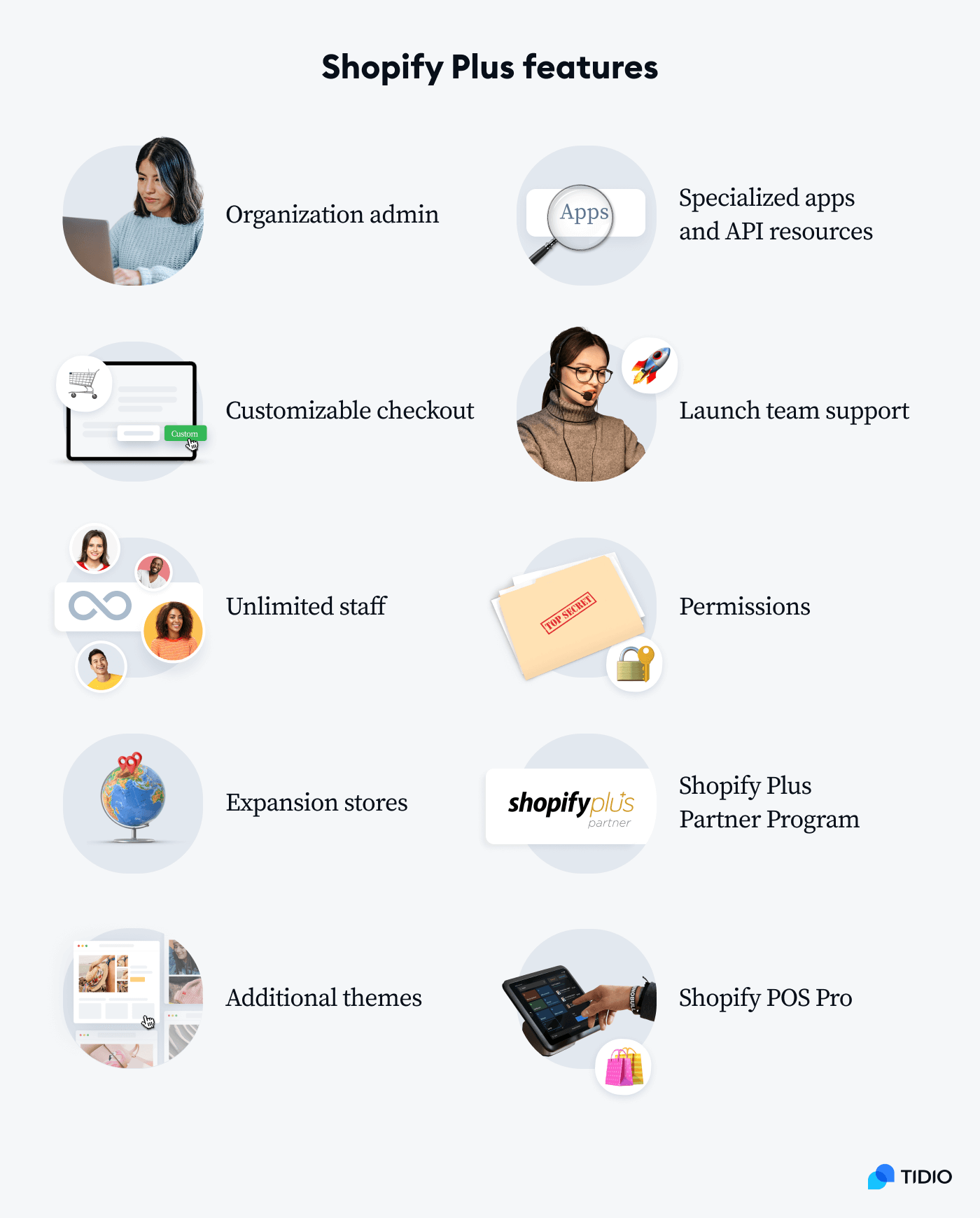
Traditional eCommerce Platforms
WooCommerce
WooCommerce is a free, open source and user-friendly WordPress plugin that lets users build unique online stores. It offers some interesting notable features like unlimited product listing, organized user interface, multiple plugins & extensions, SEO-friendliness, theme compatibilities, built-in payment processing, single-click refunds, easy shipping options, secure hosting, etc. Interestingly over 99% of WordPress users prefer using WooCommerce for their eCommerce stores. Get complete control over your store’s development. All credit goes to its handy features and convenient customization.
BigCommerce
Introduced in 2009, BigCommerce is a NASDAQ-listed Saas-based eCommerce platform that allows you to create an online store and manage everything in a single place. BigCommerce works entirely in the cloud infrastructure. It means there is no need to download anything to run this software. It’s that simple. Register for an account and create a domain name to activate BigCommerce and you are ready to go!
No prior technical expertise is required to set up your first eCommerce store. Some salient features of BigCommerce are free templates, SEO tools, page builder, automated image optimization, in-built CMS, multiple 3rd party apps integration, analytics reporting, selling unlimited products, many themes, etc.
Magento (Now Adobe Commerce)
Magento needs no introduction in the eCommerce realm, as it has a well-established reputation in the industry. An open-source eCommerce platform that permits businesses to set up and manage their online stores, primarily known for its high scalability, customizability, and flexibility features.
With Magento, scale your online business from a few customers to a million in the least possible time. Around 267,000 online stores are operational on Magento, which powers 0.6% of the internet. Nearly 5000 times a day, Magento is being downloaded. Magento performs well on the features criteria like catalog management, order management, customer management, SEO, payment and shipping, and much more. Magento is the most suitable for newbie eCommerce sellers. You can get additional community guides and assistance along the way once you install Magneto for your eCommerce store creation.
Analysis Between Shopify Plus vs Traditional eCommerce Platforms
| Parameters | Shopify Plus | WooCommerce | BigCommerce | Magento |
|---|---|---|---|---|
| Setup Ease & Functionalities | User-friendly Interface, Unified dashboard | Highly customizable, technical expertise required | Hosted platform, allows multi-channel selling across | Highly scalable but steep learning curve for beginners |
| SEO Capabilities | Top-tier SEO tools | Best WordPress-based Plugins | Highly optimized SEO tools | Advanced SEO features, and prior SEO expertise required |
| Payment Gateways | In-built Shopify payments, supports 100+ gateways | Supports Stripe & PayPal with additional plugin support | Get the popular gateways with zero transaction fees | Support popular gateway integrations with additional features |
| Customization & Flexibility | Unlimited themes & apps, best for standard uses | Highly customizable with advanced plugin offerings | Less intuitive than Shopify, limited customization options | Extensive Customizable Capabilities |
| Price Comparison | Quote-based monthly subscription model | It is free. Pay for domain & hosting services only | Available in $29.9 monthly plan. Zero transaction fees | It is free. Pay for the enterprise version only |
| Security | Offers robust security measures with PCI compliance | Users are responsible for security | Provides best security practices | Highly protected with PCI-DSS compliance |
| Integration | App store for customized app integrations including API resources | Unlimited plugin integrations for a diverse array of use | Limited app integrations are available | Offers integrations with ERP systems, CRM platforms, payment gateways & much more |
Shopify Plus Benefits
Customization and Flexibility
- Shopify Plus: Shopify is known for offering a wide range of themes and applications for customization. However, compared to other open-source eCommerce platforms you need to compromise if specific customization is required.
- Traditional eCommerce: Open-source platform delivers extensive customization options, allowing for infinite flexibility. More technical expertise would be needed. Best suitable for businesses with specific feature requirements
Scalability
- Shopify Plus: Shopify Plus is a self-hosted, highly scalable eCommerce platform that simplifies the process of creating and managing an online store. No technical expertise is needed to manage stuff like domain, hosting, and SSL certificates. It has become the top choice among all sizes of businesses, especially for medium to large-scale business operations.
- Traditional eCommerce: In the earlier versions of eCommerce platforms, scalability relies upon the platform’s architecture. As your store grows, you need a specific plan to implement scalability measures.
Customer Support and Accessibility
- Shopify Plus: Customer support is a crucial element in a competitive eCommerce business environment and Shopify never disappoints its users. They offer dedicated 24/7 customer support through phone, email, and live chat. Get your business-related queries resolved from documentation and community forums.
- Traditional eCommerce: It depends on the hosting provider or the eCommerce platform you are using. For instance, WooCommerce offers limited customer support due to its open-source ecosystem. Although, you may get technical assistance at an additional cost.
Ease of Use
- Shopify Plus: Every eCommerce platform promises an extensive range of features, but accessing their features as seamlessly as possible can be a deal-breaker for online entrepreneurs. Shopify Plus again tackles this issue beautifully as it allows users to set up and manage their online stores without prior technical expertise requirements. Shopify’s drag-and-drop features & wide range of pre-designed templates are revolutionary from a seller’s standpoint.
- Traditional eCommerce: Older versions of eCommerce solutions often face issues like high-level technical skills requirements for store set-up and customization. Users must be aware of the web hosting, software installation, and coding.
Budget and Pricing
- Shopify Plus: Cost is a crucial element for any business operations. When you aim to deliver a world-class shopping experience to your customer, the price can be negotiated with features. Shopify offers value for the money you pay. Get a monthly subscription worth $39 and enjoy the benefits of hosting, support, and much more. You can pay for theme purchases, app subscriptions, and transactional fees.
- Traditional eCommerce: Most of the open-source platforms offer free eCommerce services at the initial level. As you move forward with more customized business requirements, costs can accumulate from web hosting, plugins, customized development, and maintenance.
When can Shopify Plus be Best Suitable for Your Business?
Consider these points where Shopify Plus can be the best option:
- Want to enhance user’s shopping experience
- You want to scale your business like managing multiple brands
- You need customized solutions that seamlessly integrate with existing business structures.
- Looking for an admin and developer-friendly eCommerce solution
When to go for Traditional eCommerce Solutions?
In the below-mentioned cases, traditional eCommerce solutions can be a good fit for your business:
- You are a small-scale online entrepreneur as traditional eCommerce platforms often have low upfront costs.
- You are looking for a simplified, streamlined, and easy-to-manage business operation.
- You have a well-established eCommerce business and don’t need complex customizations
- You have limited access to technical expertise and you don’t need highly customized website design
Conclusion
Traditional eCommerce and Shopify come with their advantages and disadvantages. The crucial factors like your business requirements, resources, and capabilities matter the most when going for the best eCommerce platforms. Small-scale business owners often prefer traditional platforms for a faster online presence. On the other hand, for large-volume e-commerce businesses, Shopify Plus remains the top choice.
Before making the final decision, businesses should assess their realistic market presence to determine whether traditional or Shopify Plus aligns with future business goals. Build an optimal foundation for your eCommerce business by collaborating with Ignitiv, a pioneer in the eCommerce consultation space, and deliver a memorable customer experience. If you are ready to get started with Shopify Plus, contact us to explore more about what is Shopify store, seamless Shopify Plus websites implementation, and maximize Shopify Plus success.
